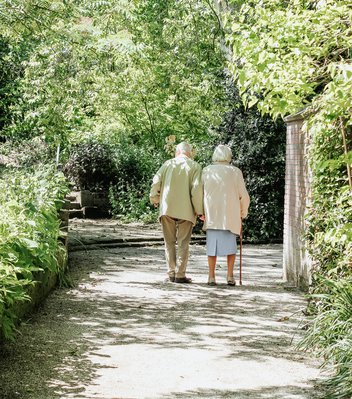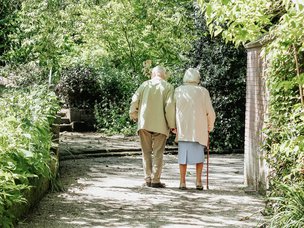
There are close to 13 million people aged 65 and above in the UK, two million of which live alone and around 418,000 people living in care homes.
Ensuring they stay safe and secure is vital because although they are at a lower risk of crime overall than other groups, they are more vulnerable to some types of crime. Some are at risk because they become targets of perpetrators who may discover they are bereaved or living alone. If you are a senior living alone and receiving care, what security features can help you feel safer during the times you are alone at home?
Security Cameras and Video Doorbells
Statistics show that both elderly and disabled people can be more vulnerable to crime. There are many reasons postulated for this fact — including potential economic disadvantage and (in some cases) difficulties with communication. There are many security options for disabled and elderly homeowners that enable carers and family members to keep an eye on what’s going on — including security cameras to monitor events both in and outside the home. Some cameras offer live viewing, which loved ones can use to check on their senior relatives throughout the day. Video doorbells, meanwhile, allow home dwellers to see who is ringing the bell, thereby enabling them to differentiate between friends or messengers and strangers/potential robbers.
Medical Alert Systems
There is a wide array of medical alert systems with features such as smartwatch connection to emergency responders, hands-free (voice-activated) communication, and speedy response times. Some systems can also be used in cars and have crash detection and GPS features so emergency responders can locate users even if they are unable to identify their location. Other systems have fall detection, which can be very useful considering the fact that around 4.3 million older people said that falling topped the list of their concerns.
Find out what the top 5 alarm pendants for older people are here.
Home Automation
Smart home technology has grown vertiginously in popularity in the UK, with 57% of British people now having a smart device in their home and one in six users controlling their smart device from outside their home on a regular basis. Smart home features can help keep interiors at an optimal temperature (protecting home dwellers from overheating), identify leaks in plumbing and other home equipment, and ensure that only authorised users are able to access the home. Smart locks, in particular, send users automated alerts when a person enters or leaves a home; creates access for loved ones, carers, cleaners, and other people a senior authorised to visit them; and lock or unlock automatically via smartphone. Automated garage doors, meanwhile, enable seniors to drive in and out of their homes via smartphone, without having to get out of their cars.
To Summarise...
Seniors, like disabled people, are more vulnerable to crime in many parts of the world. They can feel more secure by opting for video surveillance, medical alert systems, and home automation. Smart locks are particularly useful when it comes to granting or revoking specific people access to one’s home.
Are you looking for a care service for a loved one? Please get in touch for free help & advice!
Call us on 01865 680331
Send message
